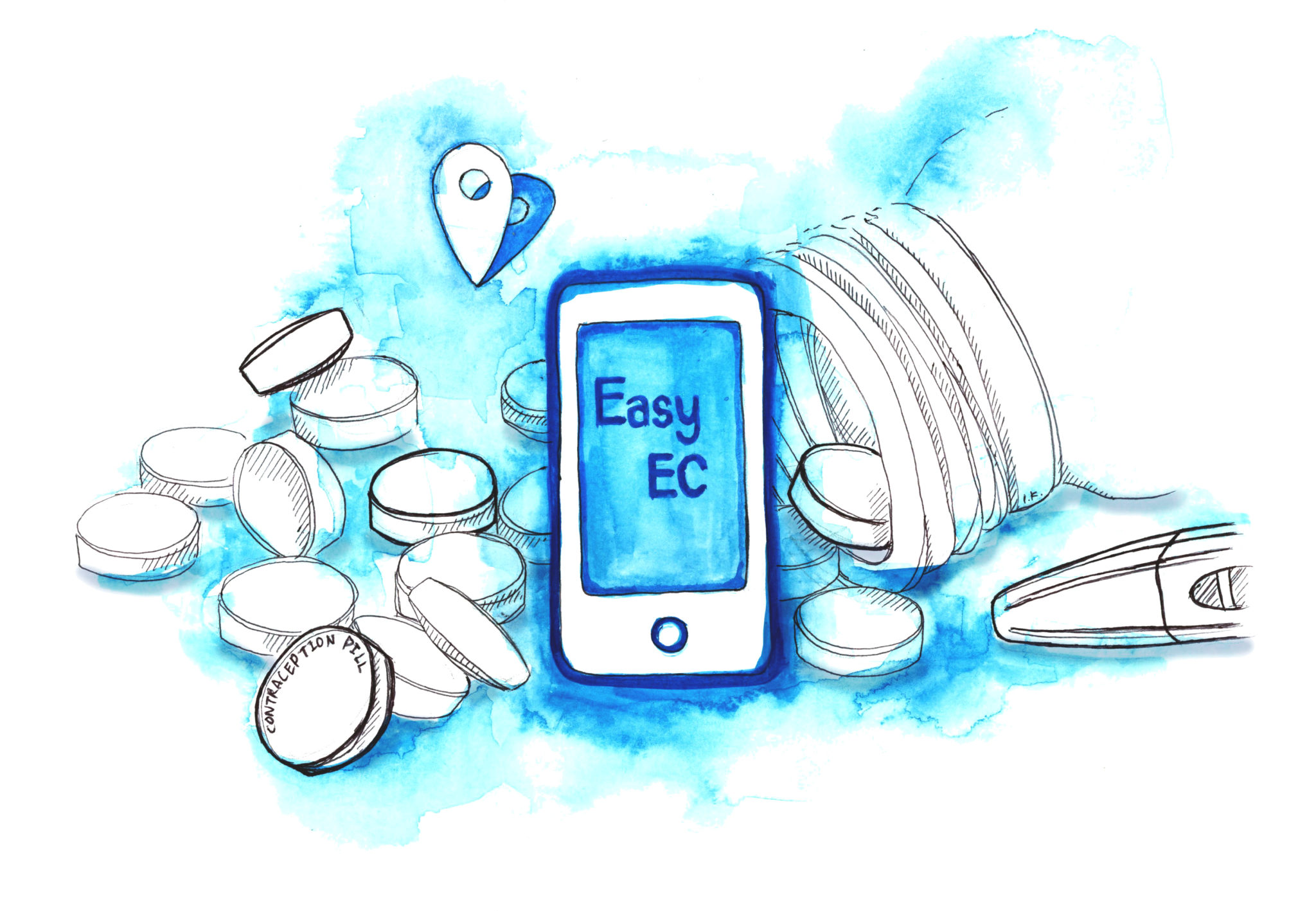
A study conducted by the Yale School of Medicine in 2013 found that nearly 40 percent of women seek information about reproductive health from smartphone apps or medical websites. Now, Nicole Gusman SPH ’18 and collaborator Robby Cowell have created Easy EC, a free and confidential online tool to help more young people access emergency contraception.
“I saw a problem of young people struggling to access emergency contraception within the 72-hour window [after unprotected sex],” Gusman said. “Easy EC is going to be a solution to that problem; it self updates and people can access it wherever they need, and it’s confidential.”
Gusman previously worked as an adolescent health educator at a nonprofit in California, where she realized that girls were having trouble obtaining emergency contraception within the 72-hour time frame.
“Access [to contraception] is generally one of the bigger problems,” said Jessica Newman GRD ’17, an anthropology lecturer. To counteract this problem, Gusman said she created a paper flowchart for schools and juvenile halls “so people could figure out on their own what would be the best place to go for them.” Gusman soon realized, however, that an online version would allow for better dissemination of and access to this crucial information.
The online tool — which is set to launch either next month or in the spring as both an app and a website — will help young women navigate barriers to reproductive health care, including location, timing, cost, coverage and local laws and regulations, that often restrict their access to emergency contraception. Users will plug in information like gender, age and location and then be directed to the nearest provider or clinic.
Gusman hopes the two different versions of the tool will allow for a wider community of people to use it and learn about reproductive health. She said she anticipates that the web version will be used primarily by “people who are in crisis,” while the app version will help social workers and teachers work with students.
The production of the app comes in an era in which people spend increasing amounts of time on their smartphones. In January, Pew Research Center found that more than 92 percent of American adults younger than 29 own a smartphone. Newman spoke to the potency of such apps, saying of Easy EC, “It’s definitely filling a need; in particular for people who live increasingly on their phones, having it available in an app is really useful.”
For the moment, Easy EC is being tested in a pilot community in the California county where Gusman used to work. Through the program evaluation and focus groups, Gusman hopes to learn how effective Easy EC is and how often people who used the tool were able to reach a provider of emergency contraception.
In the future, Gusman hopes to expand the app to places in the greater United States, where it is difficult to find information about emergency contraception.
“There’s a stigma around everything to do with reproductive health care,” said Gina Novick, associate professor of nursing and midwifery at the Yale School of Nursing. “[So] anything that decreases the challenges that people face in accessing reproductive health care seems like a great idea.”
Easy EC has already received numerous awards, including the 2017 InnovateHealth Seed Stage Grant. Gusman said the app has gained such momentum in part because of the interest in technologies that combat social issues.
“People are excited about the power of technology and how we can use it address tough social issues that have been with us for a while,” Gusman said.
In fact, History of Medicine lecturer Ziv Eisenberg GRD ’13 noted that the app is not dissimilar to previous innovations in reproductive health. Before the late 20th century, when abortion and contraceptives were illegal in the United States, Eisenberg noted that women created their own networks to access these needs.
“The history of reproduction is filled with stories of technological innovation and entrepreneurship,” Eisenberg said.
Chloé Glass | chloe.glass@yale.edu







